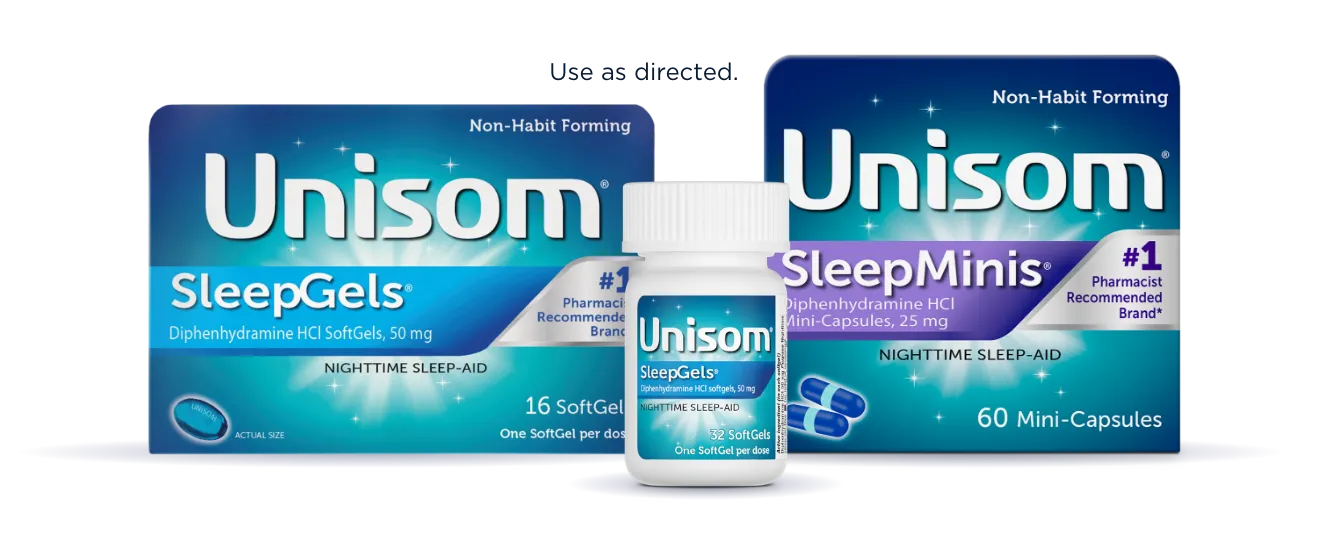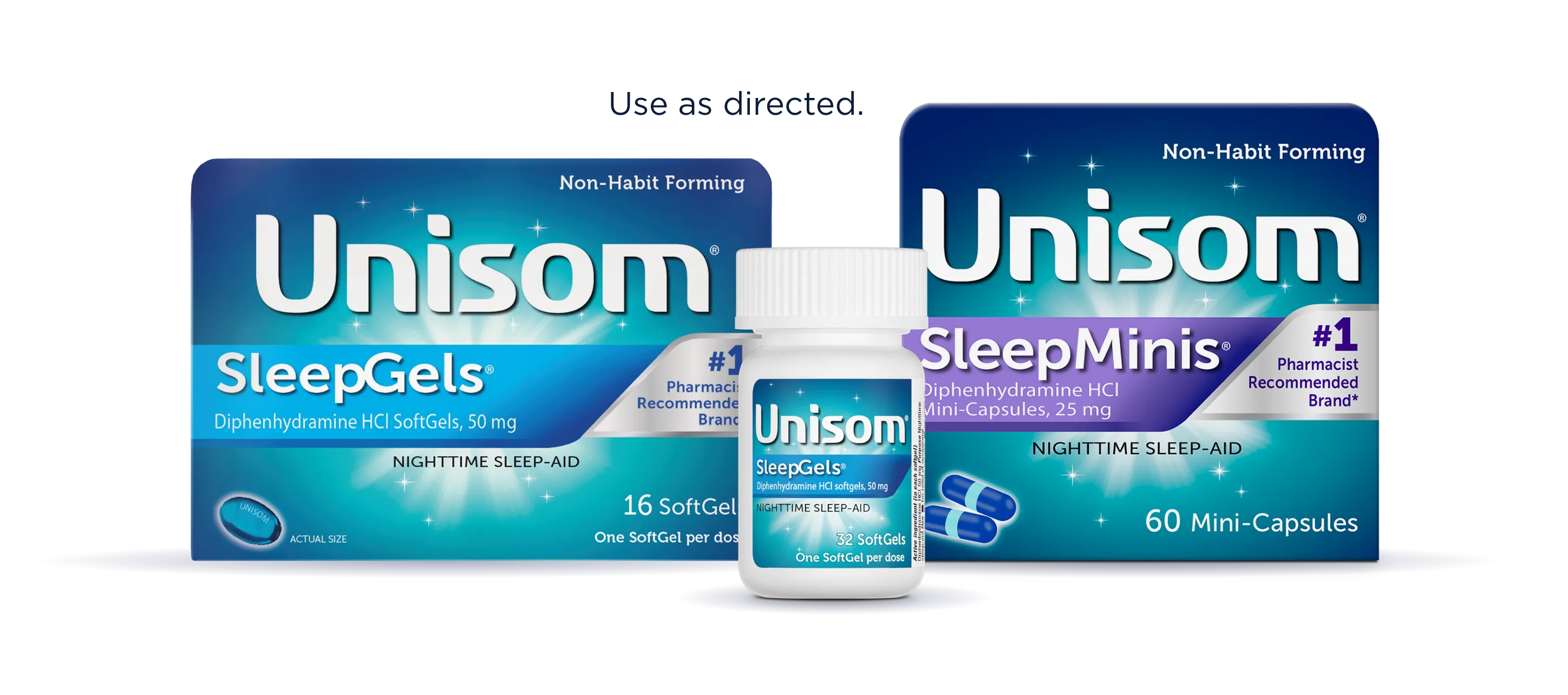After a long day, cozying up with a partner or pet can be relaxing and comforting. But it doesn’t always lead to a restful night’s sleep. A snoring spouse, a cat who insists on curling up on your head, or even a restless roommate can deny you the benefits of a full night's sleep.
But it’s nothing to lose sleep over. There are all sorts of ways the good outweighs the bad, not to mention steps you can take to successfully share your sleep environment.
Circadian rhythm
We all operate on an internal clock, set to a 24-hour cycle. This is referred to as our circadian rhythm,¹ and our bodies generally do a great job of staying on track. Our sleep can get disrupted, however, by external signals like light and temperature.
If you’re sharing your sleeping space with someone who keeps a reading lamp lit until 2 a.m. or who likes the thermostat set on the higher side, you’ve got some challenges to overcome.
.png)
Sleeping with a partner or roommate
Studies have shown that couples who sleep together have better quality sleep and experience better health.² And having someone to talk to before you turn out the light is a great way to end the day. But there can also be challenges to sharing the space (and sleep schedule) for your shut-eye.
Snoring
To drown out the sound, you could try earplugs or an ambient noise machine. If your partner is looking to reduce or eliminate occasional snoring, there are a few simple things they can try:3
- Sleep on their side
- Raise their mattress or pillow to keep their head elevated
- Avoid drinking alcohol or eating shortly before bedtime
- Stay at a healthy weight
Restless roommate
If you had your own room as a child, then shared a dorm room in college, you know cohabitation can take some getting used to. Maybe your roommate was a night owl and you were an early bird, or maybe they were just plain noisy.
To create an optimal sleep environment in less-than-ideal conditions, try a sleep mask to block out light, and earplugs or an ambient noise machine to block the noise.⁴
.png)
Pets in the bed
Our four-legged friends provide valuable companionship on a number of levels. Pets can reduce stress, lower blood pressure, and lessen the risk of depression.5 And even though dogs do move around quite a bit during the night, a dog-human cohabitation study found that these movements did not have a negative impact on the dog owner's sleep.5
However, you should also keep in mind that letting a pet share a bed doesn’t work for everyone. If you’re a light sleeper or have allergies, it’s probably better to get them their own bed.⁵
Awake at 2 a.m.
If you’re snuggled up with that special someone and still find yourself with eyes wide open in the middle of the night, don’t despair (and don’t turn on the bedside light!). The sleep experts at Johns Hopkins Medical Center offer these tips to help ease you back toward slumberland.
- Don’t watch the clock. Your anxiety levels will go through the roof if you lie there and watch the numbers change. Plus the light from your clock, phone, or tablet can make you feel more awake.⁶
- Get comfortable. A full bladder can make you uncomfortable, so hit the bathroom before bed. Make sure your bedroom is the right temperature and that your pillow and blanket are just the way you like them.⁶
- Don’t just lie there. If you haven’t fallen back asleep after about 20 minutes, get out of bed. Sit in a comfy chair in another room, and read a book under soft light. Whatever you do, don’t stay in bed — this can make your body associate being in bed with wakefulness instead of sleep.⁶
- Follow your normal schedule the next day. Avoid the temptation to take a long nap or go to bed a lot earlier. The best way to get back on track is to stick with your normal routine.⁶
Rest assured
If you or your partner ever have trouble falling asleep or staying asleep, it’s good to know that there’s variety of effective sleep remedies available over the counter.
Choosing the right sleep-aid is simply a matter of doing a little research and talking to your doctor.
And you can count on us to get a better night's sleep. Unisom® is the #1 doctor-recommended OTC sleep-aid brand, with a range of options to help you fall asleep and wake up feeling refreshed.
Unisom® SleepGels® contain the histamine blocker diphenhydramine HCl. Blocking histamine production can help you fall asleep faster and stay asleep.
Unisom® SleepTabs® contain doxylamine succinate, which is a clinical-strength histamine blocker that works in a similar fashion to diphenhydramine. Unisom® SleepTabs® can help you fall asleep 33% faster and get a full night's sleep.
Find the Unisom® product that’s right for you.
Professional References
1. American Sleep Association, Editors. Circadian Rhythm and Sleep, American Sleep Association.
2. AASM Sleep Education, Editors. Couples who sleep together have better health, American Academy of Sleep Medicine. February 14, 2013.
3. Cleveland Clinic, Editors. Is Your Spouse a Heroic Snorer? 3 Tips to Quieter Sleep, Cleveland Clinic.
4. Dr. Nilong Vyas, Reviewer. Sleep Hygiene, Sleep Foundation a OneCare Media Company. August 14, 2020.
5. Juliann Scholl, Is It Healthy to Sleep With Pets? Sleep.org, March 17, 2021.
6. Johns Hopkins Medicine, Editors. Up in the Middle of the Night? How to Get Back to Sleep, Johns Hopkins Medicine.
Related articles
†These statements have not been evaluated by the Food and Drug Administration. This product is not intended to diagnose, treat, cure or prevent any disease.


.png)


